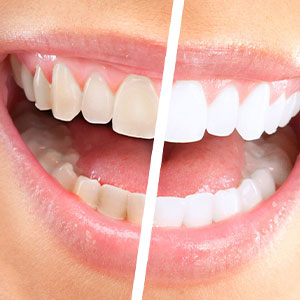Transform Smile With Dental Implant Surgery
In the past, bridges and removable dentures were used to replace missing teeth. These dentures caused potential damage to healthy neighboring teeth and were often difficult to maintain and even required regular maintenance. With today's technology, doctors can replace a tooth with long-lasting dental implant treatment offered at Aspen Dental.
The best part of dental implants is that they do not require the grinding down of any healthy teeth to fix them, help avoid the bone loss that can frequently happen after the teeth loss, and implants look just like natural teeth and can last for the lifetime of provided with proper care.
To provide a clearer perspective, the dental implant expert at Aspen Dental Clinic, best dental clinic in Gurgaon, has provided detailed insights on dental implants and how they can help one to achieve a healthy and confident smile.
Why are dental implants popular nowadays?
Dental implants act as the roots of tooth loss and are surgically inserted into the jawbone. The implants won't slip, produce noise, or harm the bone in a way permanent bridgework or dentures might since the titanium in them fuses with one's jaw.
The kind of implant used and the health of the jawbone will determine how the procedure is carried out. Multiple procedures may be integrated in the surgery. The main advantage of implants is reliable stability for new teeth, which mandates that the bone around the implant heals properly. It might take a while for the bones to recover.
Advantages-
Offer tooth replacement that is permanent
Restores appearance and functionality to normal protects the remaining bones.
Prevents the drooping appearance of the face caused by tooth loss
Doesn't impact the surrounding teeth, helping to preserve the dental structure.
Ideal Candidates for Dental Implants Surgery-
Losing one or more teeth
Avoid using tobacco.
Possess a jawbone that has fulfilled its growing
Possess sufficient anchor to bone the implants
Possess appropriate oral tissues
Don't have any health problems that could interfere with bone healing
Who cannot or will not wear dentures
Are prepared to devote a few months to the procedure.
Preparation Before Dental Implants-
Comprehensive dental examination. Dental X-rays, 3D photographs, and models of the teeth and jaw may be created.
Reviewing the medical background. Any medical issues one may have, along with any prescription, OTC, and dietary supplement use, should be discussed with the doctor.
The doctor might advise antibiotics prior to surgery in order to prevent contamination if one has certain cardiac issues or orthopedic implants.
The plan of treatment is customized for one's needs, how many teeth need to be restored and the health of the jaw and existing teeth.
Note: During surgery, local or general anesthesia is given to managing pain. Depending on the type of anesthesia administered, the dental care team will advise one on what to eat and drink before the surgery.
Choosing Suitable Implants-
Additional imprints are taken of the mouth and residual teeth once the gums have healed. The crown, the artificial tooth that appears normal, is made using these impressions. The jawbone must be healthy enough to sustain the function of the new tooth before the crown can be fitted.
Fixed: This method involves the permanent attachment of a prosthetic tooth via screws or cement to a particular implant site. The tooth cannot be taken out for cleaning or while sleeping. Each crown is normally affixed to a separate dental implant. However, if multiple teeth are bridged together, one implant can replace all of them due to sturdiness.
Removal: This kind comes in partial and complete dentures and is comparable to a traditional removable denture. It has pink plastic gum around white fake teeth. It snaps firmly into place and is fixed on a metal frame that is connected to the implant abutment. It is simple to remove for maintenance or regular cleaning.
Delayed or Immediate Loading: The tooth on top of the implant is often only provided after the fixture has been in the bone for 3 months to integrate with the bone, but because of new improvements in implantology, implants can now be loaded immediately. With this technique, patients can start using their new tooth the day following the implant fixation or within a week.
After Surgery Care-
Regardless of whether one undergoes dental implant surgery in one or more stages, one could feel some standard discomforts including:
Swelling of face and gums
Bruising of gums and skin
Minimal bleeding
Post-surgery, one may need painkillers and antibiotics
Result
Dental implants are often effective. If performed by an expert the surgery offers the best outcomes. If the bone doesn't properly fuse, the implant is taken out, the area is cleaned up, and the surgery can be repeated in approximately three months.
One can get an expert consultation at Aspen Dental to know more about dental implant cost in Gurgaon.




Comments
Post a Comment